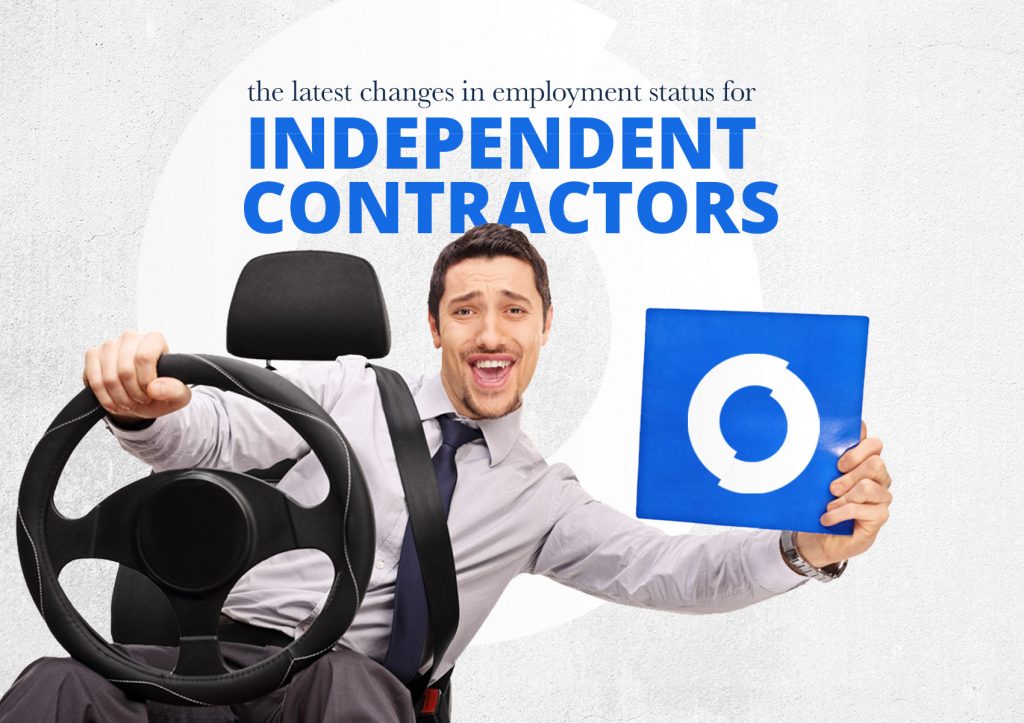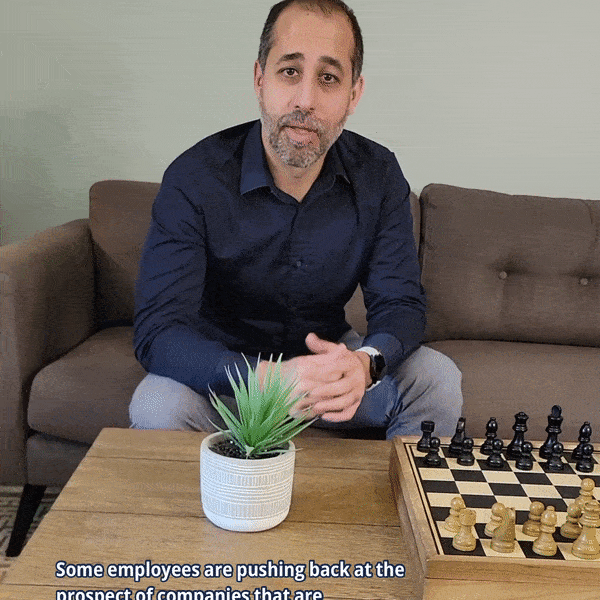The US National Labor Board (NLRB) recently asked for commentary on the standard for proving independent contractor status under federal law. The question arose due to a request by the Atlanta Opera, an employer, to review an immediate decision that makeup artists, wig artists, and hairstylists are employees of the Atlanta Opera, and not independent contractors. The NLRB specifically asked:
- Should the Board continue to adhere to the independent contractor standard in SuperShuttle DFW, Inc., 367 NLRB No. 75 (2019)?
- If not, should the Board return to the standard in FedEx Home Delivery, 361 NLRB 610, 611 (2014), either in its entirety or with modifications? Or should the Board create a new standard?
The NLRB’s actions may signal a reconsideration of how independent contractors are classified, potentially impacting the rights of gig workers. When an employer classifies workers as independent contractors, employers can avoid paying benefits and effectively prevent workers from unionizing. The Supershuttle and FedEx decisions both apply the following common law factors from Restatement (Second) of Agency § 220 (1958) to determine whether a worker is an employee or independent contractor:
- The extent of control which, by the agreement, the master may exercise over the details of the work.
- Whether or not the one employed is engaged in a distinct occupation or business.
- The kind of occupation, with reference to whether, in the locality, the work is usually done under the direction of the employer or by a specialist without supervision.
- The skill required in the particular occupation.
- Whether the employer or the workman supplies the instrumentalities, tools, and the place of work for the person doing the work.
- The length of time for which the person is employed.
- The method of payment, whether by the time or by the job.
- Whether or not the work is part of the regular business of the employer.
- Whether or not the parties believe they are creating the relation of master and servant.
- Whether the principal is or is not in business.
The courts have ruled that no one factor should be determinative of whether a worker is an independent contractor or employee, but instead, that each factor should be assessed and weighed on a case-by-case basis. Another significant consideration that the courts have weighed considering the above Restatement factors is whether independent contractors possess significant entrepreneurial opportunity for gain or loss. The presence or lack of entrepreneurial opportunity became significant in evaluating the Restatement factors and the significance of entrepreneurial opportunity depends on the specific facts of each case.
In the NLRB’s 2014 FedEx decision, the NLRB essentially rejected the significance of entrepreneurial opportunity when evaluating the Restatement factors. Under FedEx, the NLRB would only give weight to actual, and not merely theoretical, entrepreneurial opportunity and the NLRB would evaluate whether the constraints imposed by a company would impose on an individual’s ability to pursue opportunities. The NLRB under FedEx further narrowed the scope of independent contractor status by essentially adding another factor to the Restatement factors: whether or not the individual was rendering services as part of an independent business. Within this factor, the NLRB under FedEx placed entrepreneurial opportunity as an element of consideration, essentially making entrepreneurial opportunity a sub-element of only one factor. Under FedEx, the NLRB significantly diminished the consideration of economic opportunity and emphasized the significance of the right to control factors which resulted in more individuals to be classified as employees rather than independent contractors.
However, the test changed again in 2019. Under the current standard in Supershuttle, the NLRB overruled the FedEx decision, and went back to applying the traditional, common law test for evaluating independent contractors under the National Labor Relations Act. The majority in the Supershuttle decision noted that it was not necessary to apply the entrepreneurial opportunity principle to each of the Restatement factors in each and every case. Instead, under Supershuttle, the NLRB may evaluate the Restatement factors under the “prism of entrepreneurial opportunity” of the specific factual circumstances of the case when the situation calls for it.
In opening the inquiry regarding which test to apply, the NLRB has also signified that it was willing to consider a alternative test aside from FedEx or Supershuttle. Another significant test that was passed in California in 2019 called Assembly Bill 5 or AB5. Effective in January 1, 2020, AB5 affected the independent contractor status of individuals throughout California. In AB5, the law essentially codified a landmark decision in Dynamex Operations West, Inc. v. Superior Court of Los Angeles (2018) 4 Cal.5th 903. Under Dynamex, the California Supreme Court determined that a stringent, three pronged “ABC Test” must be used to determine worker classification. Under the ABC Test, the employer must overcome the presumption that a worker was an employee. The burden was on the employer to prove the independent contractor status of the worker. To prove this, the employer must show that the worker satisfies all three criteria under the ABC Test:
- the worker is free from control and direction in the performance of services;
- the worker is performing work outside the usual course of the business of the hiring company; and
- the worker is customarily engaged in an independently established trade, occupation, or business.
There are, of course, exceptions to the ABC Test, in which certain types of work are excluded and business to business contractors. Many industries are and will be affected by the NLRB’s decision, and where the NLRB lands on whether to continue the analysis under Supershuttle or to follow the test under FedEx or even California’s ABC test would significantly shift the independent contractor status of individuals. The NLRB is expected to make a decision later this year. In asking for commentary regarding the current standard under Supershuttle, the NLRB may be signaling that it is willing to return to the FedEx decision, and possibly even modifying FedEx to be closer to California’s ABC test. Thus, if the NLRB decides to return to FedEx, or a modified version of FedEx, it would make it more difficult for companies to classify workers as independent contractors. Of course, states are free to enact their own tests under state law, that is more restrictive than the federal law.


![Buyers vs. Sellers: Negotiating Mergers & Acquisitions [e319]](https://www.pashalaw.com/wp-content/uploads/2022/06/Pasha_LSSB_BuyersVsSellers_banner-1024x723.jpg)


![Employers vs. Employees: When Are Employment Restrictions Fair? [e318]](https://www.pashalaw.com/wp-content/uploads/2022/05/Pasha_LSSB_EmployeesVsEmployers_banner-1-1024x723.jpg)







![Business of Healthcare [e316]](https://www.pashalaw.com/wp-content/uploads/2021/11/Pasha_LSSB_BusinessofHealthcare_banner-1024x723.jpg)




![Law in the Digital Age: Exploring the Legal Intricacies of Artificial Intelligence [e323]](https://www.pashalaw.com/wp-content/uploads/2023/11/WhatsApp-Image-2023-11-21-at-13.24.49_4a326c9e-300x212.jpg)
![Unraveling the Workforce: Navigating the Aftermath of Mass Layoffs [e322]](https://www.pashalaw.com/wp-content/uploads/2023/07/Untitled-design-23-300x212.png)
![Return to the Office vs. Remote: What Can Employers Legally Enforce? [e321]](https://www.pashalaw.com/wp-content/uploads/2023/01/Pasha_LSSB_321_banner-300x212.jpg)
![Explaining the Hans Niemann Chess Lawsuit v. Magnus Carlsen [e320]](https://www.pashalaw.com/wp-content/uploads/2022/10/LAWYER-EXPLAINS-7-300x169.png)
![California v. Texas: Which is Better for Business? [313]](https://www.pashalaw.com/wp-content/uploads/2021/07/Pasha_LSSB_CaliforniaVSTexas-300x212.jpg)
![Buyers vs. Sellers: Negotiating Mergers & Acquisitions [e319]](https://www.pashalaw.com/wp-content/uploads/2022/06/Pasha_LSSB_BuyersVsSellers_banner-300x212.jpg)
![Employers vs. Employees: When Are Employment Restrictions Fair? [e318]](https://www.pashalaw.com/wp-content/uploads/2022/05/Pasha_LSSB_EmployeesVsEmployers_banner-1-300x212.jpg)
![Vaccine Mandates Supreme Court Rulings [E317]](https://www.pashalaw.com/wp-content/uploads/2022/02/WhatsApp-Image-2022-02-11-at-4.10.32-PM-300x212.jpeg)
![Business of Healthcare [e316]](https://www.pashalaw.com/wp-content/uploads/2021/11/Pasha_LSSB_BusinessofHealthcare_banner-300x212.jpg)
![Social Media and the Law [e315]](https://www.pashalaw.com/wp-content/uploads/2021/10/WhatsApp-Image-2021-10-06-at-1.43.08-PM-300x212.jpeg)
![Defining NDA Boundaries: When does it go too far? [e314]](https://www.pashalaw.com/wp-content/uploads/2021/09/Pasha_LSSB_NDA_WordPress-2-300x212.jpg)
![More Than a Mistake: Business Blunders to Avoid [312] Top Five Business Blunders](https://www.pashalaw.com/wp-content/uploads/2021/06/Pasha_LSSB_Blunders_WP-1-300x212.jpg)
![Is There a Right Way to Fire an Employee? We Ask the Experts [311]](https://www.pashalaw.com/wp-content/uploads/2021/02/Pasha_LSSB_FireAnEmployee_Website-300x200.jpg)
![The New Frontier: Navigating Business Law During a Pandemic [310]](https://www.pashalaw.com/wp-content/uploads/2020/12/Pasha_LSSB_Epidsode308_Covid_Web-1-300x200.jpg)
![Wrap Up | Behind the Buy [8/8] [309]](https://www.pashalaw.com/wp-content/uploads/2020/11/Pasha_BehindTheBuy_Episode8-300x200.jpg)
![Is it all over? | Behind the Buy [7/8] [308]](https://www.pashalaw.com/wp-content/uploads/2020/09/iStock-1153248856-overlay-scaled-300x200.jpg)
![Fight for Your [Trademark] Rights | Behind the Buy [6/8] [307]](https://www.pashalaw.com/wp-content/uploads/2020/07/Fight-for-your-trademark-right-300x200.jpg)
![They Let It Slip | Behind the Buy [5/8] [306]](https://www.pashalaw.com/wp-content/uploads/2020/06/Behind-the-buy-they-let-it-slip-300x200.jpg)
![Mo’ Investigation Mo’ Problems | Behind the Buy [4/8] [305]](https://www.pashalaw.com/wp-content/uploads/2020/05/interrobang-1-scaled-300x200.jpg)
![Broker or Joker | Behind the Buy [3/8] [304] Behind the buy - Broker or Joker](https://www.pashalaw.com/wp-content/uploads/2020/04/Joker-or-Broker-1-300x185.jpg)
![Intentions Are Nothing Without a Signature | Behind the Buy [2/8] [303]](https://www.pashalaw.com/wp-content/uploads/2020/04/intentions-are-nothing-without-a-signature-300x185.jpg)
![From First Steps to Final Signatures | Behind the Buy [1/8] [302]](https://www.pashalaw.com/wp-content/uploads/2020/04/first-steps-to-final-signatures-300x185.jpg)
![The Dark-side of GrubHub’s (and others’) Relationship with Restaurants [e301]](https://www.pashalaw.com/wp-content/uploads/2015/04/When-Competition-Goes-Too-Far-Ice-Cream-Truck-Edition-300x201.jpg)
![Ultimate Legal Breakdown of Internet Law & the Subscription Business Model [e300]](https://www.pashalaw.com/wp-content/uploads/2019/05/Ultimate-Legal-Breakdown-of-Internet-Law-the-Subscription-Business-Model-300x196.jpg)
![Why the Business Buying Process is Like a Wedding?: A Legal Guide [e299]](https://www.pashalaw.com/wp-content/uploads/2019/03/futura-300x169.jpg)
![Will Crowdfunding and General Solicitation Change How Companies Raise Capital? [e298]](https://www.pashalaw.com/wp-content/uploads/2018/11/Will-Crowdfunding-and-General-Solicitation-Change-How-Companies-Raise-Capital-300x159.jpg)
![Pirates, Pilots, and Passwords: Flight Sim Labs Navigates Legal Issues (w/ Marc Hoag as Guest) [e297]](https://www.pashalaw.com/wp-content/uploads/2018/07/flight-sim-labs-300x159.jpg)
![Facebook, Zuckerberg, and the Data Privacy Dilemma [e296] User data, data breach photo by Pete Souza)](https://www.pashalaw.com/wp-content/uploads/2018/04/data-300x159.jpg)
![What To Do When Your Business Is Raided By ICE [e295] I.C.E Raids business](https://www.pashalaw.com/wp-content/uploads/2018/02/ice-cover-300x159.jpg)
![General Contractors & Subcontractors in California – What you need to know [e294]](https://www.pashalaw.com/wp-content/uploads/2018/01/iStock-666960952-300x200.jpg)
![Mattress Giants v. Sleepoplis: The War On Getting You To Bed [e293]](https://www.pashalaw.com/wp-content/uploads/2017/12/sleepopolis-300x159.jpg)
![The Harassment Watershed [e292]](https://www.pashalaw.com/wp-content/uploads/2017/12/me-2-300x219.jpg)
![Investing and Immigrating to the United States: The EB-5 Green Card [e291]](https://www.pashalaw.com/wp-content/uploads/2012/12/eb-5-investment-visa-program-300x159.jpg)
![Responding to a Government Requests (Inquiries, Warrants, etc.) [e290] How to respond to government requests, inquiries, warrants and investigation](https://www.pashalaw.com/wp-content/uploads/2017/10/iStock_57303576_LARGE-300x200.jpg)
![Ultimate Legal Breakdown: Employee Dress Codes [e289]](https://www.pashalaw.com/wp-content/uploads/2017/08/Ultimate-Legal-Breakdown-Template-1-300x159.jpg)
![Ultimate Legal Breakdown: Negative Online Reviews [e288]](https://www.pashalaw.com/wp-content/uploads/2017/06/Ultimate-Legal-Breakdown-Online-Reviews-1-300x159.jpg)
![Ultimate Legal Breakdown: Social Media Marketing [e287]](https://www.pashalaw.com/wp-content/uploads/2017/06/ultimate-legal-breakdown-social-media-marketing-blur-300x159.jpg)
![Ultimate Legal Breakdown: Subscription Box Businesses [e286]](https://www.pashalaw.com/wp-content/uploads/2017/03/ultimate-legal-breakdown-subscription-box-services-pasha-law-2-300x159.jpg)
![Can Companies Protect Against Foreseeable Misuse of Apps [e285]](https://www.pashalaw.com/wp-content/uploads/2017/01/iStock-505291242-300x176.jpg)
![When Using Celebrity Deaths for Brand Promotion Crosses the Line [e284]](https://www.pashalaw.com/wp-content/uploads/2017/01/celbrity-300x159.png)
![Are Employers Liable When Employees Are Accused of Racism? [e283] Racist Employee](https://www.pashalaw.com/wp-content/uploads/2016/12/Are-employers-liable-when-an-employees-are-accused-of-racism-300x159.jpg)
![How Businesses Should Handle Unpaid Bills from Clients [e282] What to do when a client won't pay.](https://www.pashalaw.com/wp-content/uploads/2016/12/How-Businesses-Should-Handle-Unpaid-Bills-to-Clients-300x159.png)
![Can Employers Implement English Only Policies Without Discriminating? [e281]](https://www.pashalaw.com/wp-content/uploads/2016/11/Can-Employers-Impliment-English-Only-Policies-Without-Discriminating-300x159.jpg)
![Why You May No Longer See Actors’ Ages on Their IMDB Page [e280]](https://www.pashalaw.com/wp-content/uploads/2016/10/IMDB-AGE2-300x159.jpg)
![Airbnb’s Discrimination Problem and How Businesses Can Relate [e279]](https://www.pashalaw.com/wp-content/uploads/2016/09/airbnb-300x159.jpg)
![What To Do When Your Amazon Account Gets Suspended [e278]](https://www.pashalaw.com/wp-content/uploads/2016/09/What-To-Do-When-Your-Amazon-Account-Gets-Suspended-1-300x200.jpg)
![How Independent Artists Reacted to Fashion Mogul Zara’s Alleged Infringement [e277]](https://www.pashalaw.com/wp-content/uploads/2016/08/How-Independent-Artists-Reacted-to-Fashion-Mogul-Zaras-Alleged-Infringement--300x159.jpg)
![Can Brave’s Ad Replacing Software Defeat Newspapers and Copyright Law? [e276]](https://www.pashalaw.com/wp-content/uploads/2016/08/Can-Braves-Ad-Replacing-Software-Defeat-Newspapers-and-Copyright-Law-300x159.jpg)
![Why The Roger Ailes Sexual Harassment Lawsuit Is Far From Normal [e275]](https://www.pashalaw.com/wp-content/uploads/2016/07/WHY-THE-ROGER-AILES-SEXUAL-HARASSMENT-LAWSUIT-IS-FAR-FROM-NORMAL-300x159.jpeg)
![How Starbucks Turned Coveted Employer to Employee Complaints [e274]](https://www.pashalaw.com/wp-content/uploads/2016/07/iStock_54169990_LARGE-300x210.jpg)
